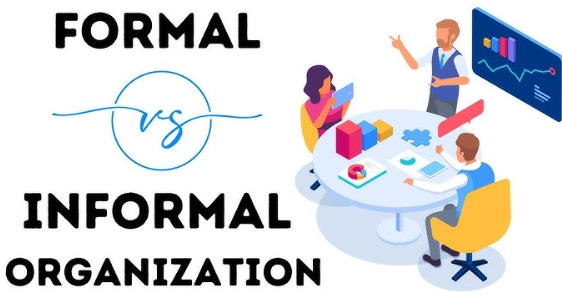Understanding the Democratic and Republican Parties
The Democratic and Republican parties are the two main political parties in the US. Because of their divergent ideologies, values, and beliefs, these two parties frequently hold opposing opinions and positions on a range of topics. Although the improvement of the nation is the shared goal of both parties, their methods and tactics differ. Here are the main distinctions between Republicans and Democrats:
1. Background History:
The Democratic Party is one of the world’s oldest political parties, having been founded in 1828. It originated in the rural South and was founded by Andrew Jackson. In contrast, the Republican Party was founded in 1854, making it much younger than the Democratic Party. It originated as a protest against slavery and served as a symbol of the industrial North.
2. Values and Ideologies:
The Democratic Party is frequently linked to progressivism and liberalism. They support policies like publicly funded healthcare, free public education, and a progressive tax structure in an effort to alleviate social and economic inequality because they think that government intervention can be effective. The party also places a high priority on women’s rights, immigration reform, and the protection of civil rights, including those of LGBTQ+ people.
In contrast, the Republican Party is more conservative and supports conventional values. They support a more limited government that keeps out of people’s lives and the market. Their top priorities are fiscal responsibility, gun rights, and individual freedoms. Additionally, they frequently highlight the significance of religious principles and reject social issues like same-sex marriage and abortion.
3. Financial Strategies:
Democrats firmly support progressive taxation and think that the government should be more involved in the economy. They place a high priority on the notion of a robust social safety net to assist the most defenseless members of society. They frequently support government spending and infrastructure investments as ways to create jobs. Democrats also have a tendency to support workers’ rights and labor unions more.
Republicans, on the other hand, support lower taxes for both individuals and corporations and fiscal conservatism. Their top priority is a minimally regulated free-market economy. They back supply-side economics, sometimes referred to as trickle-down economics, which contends that by promoting economic growth, tax breaks for the wealthy will eventually help everyone. Additionally, they typically oppose labor unions and favor deregulation.
4. International Relations:
In general, Democrats support a foreign policy strategy that is more diplomatic. They value international collaboration and alliances and subscribe to multilateralism. Additionally, they are more likely to participate in humanitarian missions to uphold democracy and defend human rights.
Republicans, on the other hand, typically value national security and take a more assertive stance on foreign policy. They are more inclined to defend national interests with military force. Republicans also have a tendency to be less likely to form foreign alliances and to support an isolationist foreign policy.
5. Changes in Climate:
Democrats typically place a higher priority on combating climate change and putting carbon emission-reduction measures into place. They think that government action is necessary to counteract the effects of climate change, and they are in favor of renewable energy sources.
Republicans, however, differ more from one another on the subject of climate change. While some acknowledge its existence and the need for government intervention, others are dubious and place a higher priority on economic expansion than environmental protection.
Table of Differences between Democrats and Republicans in Politics
| Characteristic | Democrats | Republicans |
|---|---|---|
| Ideology | Generally left-leaning | Generally right-leaning |
| Government Role | Favors government intervention in social and economic issues | Favors limited government involvement in social and economic issues |
| Economic Policy | Favors progressive taxation and social welfare programs | Favors lower taxes and free market principles |
| Social Issues | Supports progressive social policies and equality | Tends to be conservative on social issues |
| Healthcare | Favors universal healthcare and government involvement in healthcare | Favors free market solutions and limited government involvement in healthcare |
| Environment | Supports environmental protection and regulations | Emphasizes economic growth and deregulation |
| Foreign Policy | Tends to prioritize diplomacy and international cooperation | Tends to prioritize national security and military strength |
| Gun Control | Favors stricter gun control measures | Favors gun rights and opposes stricter gun control measures |
| Abortion | Supports abortion rights and reproductive freedom | Tends to oppose abortion rights and supports restrictions |
| Immigration | Favors comprehensive immigration reform and pathways to citizenship | Favors stricter immigration policies and border security |
Understanding the Fundamental Differences Between Democrats and Republicans
1. Values and Ideologies:
In general, liberal ideologies are associated with Democrats. They frequently support progressive policies, social equality, and government involvement in the economy. Democrats frequently place a higher priority on matters like environmental protection, healthcare, and education.
Republicans, on the other hand, are typically thought to have more conservative ideologies. They frequently support traditional values, free-market capitalism, and minimal government intervention. Republicans frequently place a higher priority on matters like individual liberties, national security, and reduced taxes.
2. The Function of the State:
Regarding the function of government, Democrats and Republicans diverge significantly. Democrats favor a more involved government that takes a big part in solving social and economic problems. They contend that in addition to regulating business, the government ought to fund social welfare initiatives and defend the rights of underrepresented communities.
Republicans, on the other hand, support a small-government philosophy that lessens government intervention in people’s personal and commercial affairs. They support deregulation, reduced taxes, and personal accountability. Republicans think that greater economic growth and greater personal freedom come from a smaller government.
3. Concerns of Society:
Republicans and Democrats have different positions on a range of social issues. Democrats typically take a more inclusive and progressive stance on social issues. They are in favor of racial equality, women’s reproductive rights, and LGBTQ+ rights. Democrats frequently support laws that advance inclusivity and diversity.
In contrast, Republicans typically take a more traditional and conservative stance when it comes to social issues. They frequently support pro-life stances, push for tougher immigration laws, and oppose same-sex unions. Republicans place a higher priority on national security and traditional family values.

4. Financial Strategies:
The approaches taken by Republicans and Democrats in terms of economic policies differ. Democrats generally support progressive taxation, which requires corporations and individuals with higher incomes to pay a higher share of taxes. In order to guarantee social and economic equality, they frequently support government regulation of the economy and wealth redistribution.
Republicans, on the other hand, are in favor of less regulation and taxation. They contend that tax reductions promote employment and economic expansion. Republicans frequently support limited government intervention in the economy and free-market capitalism.
5. Policies Related to Climate Change and the Environment:
Republicans and Democrats have different opinions about environmental laws and climate change. Democrats typically place a higher priority on environmental preservation and think that government action is necessary to combat climate change. They are in favor of initiatives like the promotion of renewable energy sources and the Paris Agreement.
Conversely, Republicans frequently express skepticism regarding the severity and implications of climate change. They give economic expansion and energy independence precedence over environmental considerations. Republicans frequently oppose regulations because they think they impede economic growth.
Summary of Differences in ideologies in Democratic and Republican parties
The fundamental beliefs, top policy goals, and governing philosophies that set the Democratic and Republican parties apart. Democrats typically support a more progressive agenda that places a greater emphasis on social equality, government intervention, and the federal government’s involvement in solving societal problems. They frequently give top priority to problems like income inequality, climate change, and healthcare reform. Democrats generally support policies that promote social justice, diversity, and inclusion.
Republicans, on the other hand, usually support conservative ideas, placing a strong emphasis on individual liberty, limited government intrusion, and free-market capitalism. They frequently place a higher priority on matters like deregulation, tax reduction, and a potent national defense. Republicans typically support less federal intervention in politics and place a high value on individual liberty and accountability.
Core Differences in perspectives and roles in Democratic and Republican parties
These core differences in ideology and policy priorities continue to influence the parties’ platforms and positions on policy, despite the fact that both have changed over time and now represent a broad spectrum of opinions within their respective coalitions. It is important to remember that there is frequently disagreement within each party and that not all Republicans and Democrats have the same opinions. But being aware of the main distinctions between the two parties can provide people with a better understanding of their policy positions and empower them to vote and participate in politics.
Democrats and Republicans differ from one another in terms of ideology, perspectives on the role of the state, social issues, economics, and the environment. Even though each party has its own set of values and beliefs, it’s critical to recognize these distinctions in order to make wise choices about politics and voting. Republicans and Democrats both want to see the country improve, but they go about achieving their objectives in different ways. These ideological, value, and policy differences are frequently the source of partisan disagreements and arguments. Making educated decisions about voting and engaging in politics requires an understanding of these distinctions.



